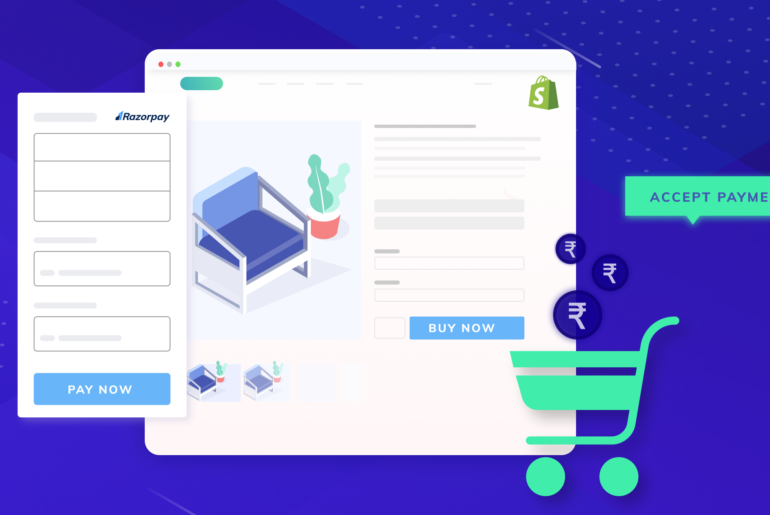Recently we conducted a webinar on the topic “How to Setup an eCommerce Business in India”. It was led by Arjit Gupta, co-founder of GoZefo.com. He has covered most of the basic questions that you may have if you are starting an eCommerce store in India.

You can watch the replay of the webinar here:
In this webinar, Arjit and Samarth explain the basic things that you need to know when you are setting up an eCommerce store. They also shared the challenges that they faced while venturing out on their eCommerce journey.
The first and the foremost thing that you need to do before setting up your own eCommerce store is research. Some of the questions that you need to ask yourself are:
What do I want to sell?
- What customer pain points are you trying to eliminate?
- What value are you trying to add in the process?
Once you have come up with answers for the above questions, the next most important task is coming up with a name for your company. The name of your company is very important from a branding perspective
Some of the basic points to remember while naming your brand are:
- It should be easy to spell and pronounce
- It should be unique, meaningful and easy to remember
- The name should be short and it is preferred not to have more than 2 syllables
- It shouldn’t have conflicting meaning in other languages
The next step is forming your company. Different countries have different types of company formations. In India, the most common types are:
- Sole Proprietorship (No Limitation of Liability)
- Limited Liability Partnership (LLP)
- A Private Limited Company
The type of company depends on the number of partners and the risks involved in the transactions. You should consult a lawyer or a CA when setting up your company.
Marketplace Model vs eCommerce Store
When you are starting your eCommerce store there are two options. You can either sell your own products or you can let other sellers list their products on your store.
When you are running the marketplace model, you are going to build the brand and sellers are going to use your brand traction to get customers. For every sale, you get a percentage commission as a standard revenue sharing model. In such a case it is a purely tech driven company. Your activities will revolve mostly around building a brand, setting standards and managing relationships with your sellers.
In certain cases however, the marketplace model may not work for you. If you are selling a unique product which only you can source, then you should sell it yourself. In such cases, you can enjoy high margins because of the rarity of the product. You can also list your products on other marketplaces, such as Amazon.
You can also have a combination of marketplace model with your own products. You can list yourself as a seller on your platform and you can drive sales.
Setting Up Your eCommerce Website
Creating an eCommerce portal online is no longer a huge challenge as it used to be. You do not need a tech team to develop an eCommerce store from scratch.
There are many plug and play solutions to start your eCommerce store. Some of the well known ones are Shopify, Magento, Prestashop. Note that they offer limited levels of customizations. If you need to add a lot of unique features to your store, then it would be better to build one from scratch.
Domain Names and Hosting
You can register a domain name on one of the popular domain registrars such as GoDaddy.com or Name.com. Chances are that you may not get the domain name you want because most of the good domain names are already taken.
You can try acquiring a premium domain name on one of the premium domain name marketplaces such as
Another way would be to try the new extensions that have been released. Or you can try an alternate name on the domain name. For example, Zefo did not get Zefo.com or Zefo.in. So they went ahead with GoZefo.com.
To host your website, you can use Amazon Web Services or the Google Cloud. You no longer need to manage your own servers. Cloud based servers are scalable and easy to maintain.
Collecting Payments
Collecting payments from your customers is one of the most important parts in selling online. GoZefo used to use Cash On Delivery to collect payments from their customers. Later they have completely switched to online payments using Razorpay.com.
With Razorpay’s integration Zefo is now able to collect payments via netbanking from more than 55 banks in India, all types of credit and debit cards, and even wallets.
Tracking the Metrics
Once you start your eCommerce business, tracking different metrics becomes very important. You have to rely on the metrics and not your gut. Decisions like how much discount to offer your customers and how much margin to maintain will be driven actionable insights dervied from the data.
You should track metrics like: conversion cost, transaction velocity, unit economics of each category and subcategory, your net promoter score (NPS).
Marketing
Without marketing, you will not be able to raise awareness about your brand and increase your sales. There are various marketing options from offline marketing to digital marketing.
Your marketing strategy depends on the product that you have. If your product has a very wide audience, you can try mass marketing.
However if your product has a niche audience, then you can target specific sites where your target audience hangs out. Social media marketing also helps when you need to reach out to a certain demographic.
Conclusion
Though this webinar has covered most of the topics on how to setup an eCommerce business in India, it’s just the tip of the iceberg. There are a lot more questions that would come up on your mind when you go through the actual process. But we hope this information is enough to motivate you to get started.



